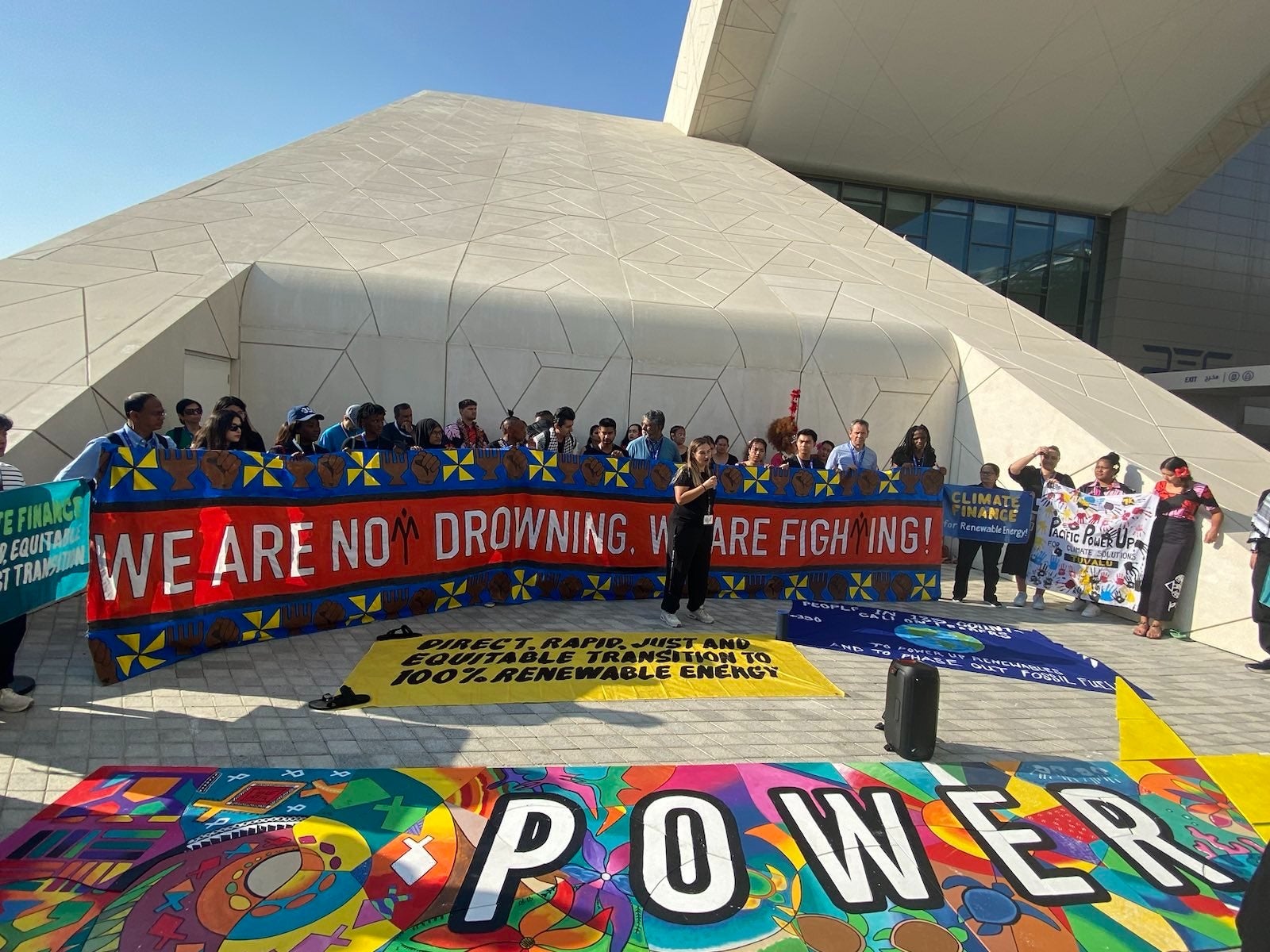‘It’s go-time’ says UN as activists pile pressure on leaders for fossil-fuel phase out at Cop28
‘Cop28 must deliver a big switch,’ says UN Climate Change Secretary Simon Stiell
Your support helps us to tell the story
This election is still a dead heat, according to most polls. In a fight with such wafer-thin margins, we need reporters on the ground talking to the people Trump and Harris are courting. Your support allows us to keep sending journalists to the story.
The Independent is trusted by 27 million Americans from across the entire political spectrum every month. Unlike many other quality news outlets, we choose not to lock you out of our reporting and analysis with paywalls. But quality journalism must still be paid for.
Help us keep bring these critical stories to light. Your support makes all the difference.
The Cop28 president has demanded that countries get out of their “comfort zones” as the tricky second week of climate negotiations began with growing momentum behind a deal that will call time on the fossil-fuel era.
National ministers have returned to the Dubai summit to pick up the baton from their delegations and reach a final agreement. The conference is scheduled to end on Tuesday, 12 December.
The central issue that has emerged is the phasing down, or out, of fossil fuels, the root cause of the climate crisis.
If these words make it into the final text, which must have consensus from the 196 countries in attendance, it would be the first time that fossil fuels are addressed in a global climate summit deal.
The UAE’s Cop28 president Sultan Ahmed al-Jaber, urged countries to “get the job done”.
“I need you to step up and I need you to come out of your comfort zones,” he said on Friday afternoon.
His words were echoed by Simon Stiell, the executive secretary of the United Nations Framework Convention on Climate Change (UNFCCC).
“Cop28 must deliver a big switch: not just ‘what’ governments must do, but also ‘how’ to get the job done. The technologies and tools all exist. This week negotiators must agree on putting them to work,” he said.

“In short, it’s go-time for governments at Cop28 this week.”
The coaxing appeared to be heeded by some. A draft of the final agreement was released later on Friday.
It includes a range of options:
- A phase-out of fossil fuels in line with best available science;
- Phasing out of fossil fuels in line with best available science - but also “the principles and provisions of the Paris Agreement”;
- A phase-out of unabated fossil fuels” recognising the need for a peak in their consumption in this decade and underlining the importance for the energy sector to be predominantly free of fossil fuels well ahead of 2050”;
- Phasing out unabated fossil fuels and to rapidly reducing their use to achieve net-zero [carbon dioxide] in energy systems by or around mid-century’
- No mention of fossil fuels.
Over the next four days (or possibly five if the summit overruns as it tends to do) these phrases will be hotly debated among countries, many of whom are currently far apart on what their energy futures should look like.
There is reason for hope: more than 100 countries have called for phasing out of fossil fuels.
However, a minister from Saudi Arabia, a petro-state, said “absolutely not” when asked about phasing out fossil fuels earlier this week. Russia has also opposed the demand.
Sultan al-Jaber, who also leads the UAE’s state oil company Adnoc, has said that he wants an “orderly” end to the summit at 11am on 12 December, which is officially the last day.
Activists were out on force at the venue on Friday, dedicated as Cop28’s “Youth Day”. Their aim is to pressure leaders to cut reliance on fossil fuels to stay under the 1.5C climate threshold and secure a liveable future for people across the world.
“In the mad dash to the Cop28 finale, even the best option in the latest text fails to commit countries to any tangible deadlines for a fossil fuel phaseout,” said Jean Su, energy justice director, at the Center for Biological Diversity.
“We need an explicit 2030 deadline to phase down all fossil fuels to near zero, with the United States and other major fossil fuel producers at the leading edge.
“It’s crunch time for these talks and most importantly for our climate.”

Join our commenting forum
Join thought-provoking conversations, follow other Independent readers and see their replies
Comments